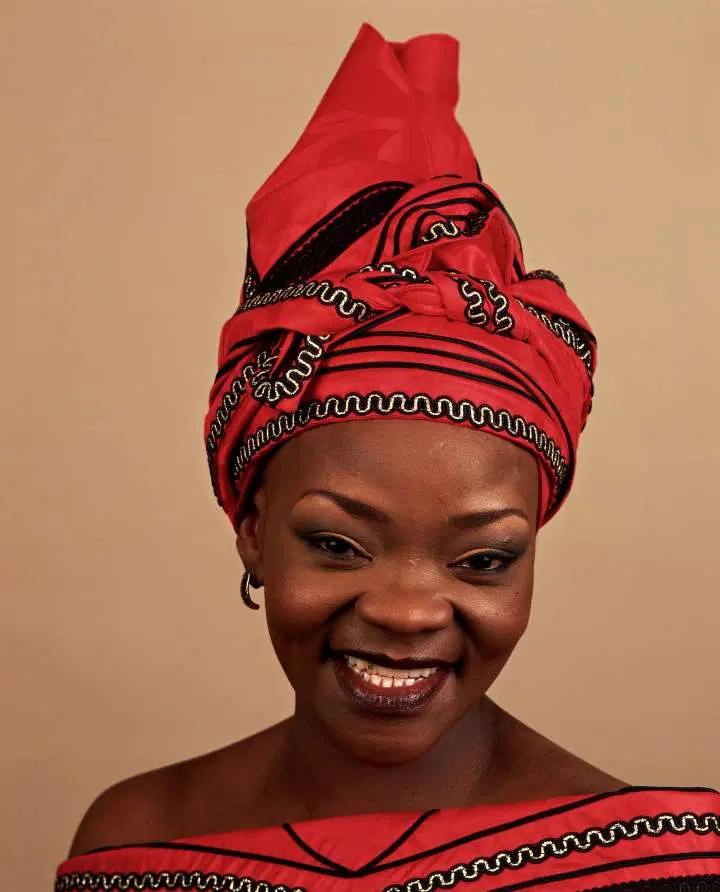
Early Life and Background
Brenda Nokuzola Fassie was born on November 3, 1964, in Langa, a township in Cape Town, South Africa. She was the youngest of nine children in a musically inclined family; her mother, a pianist, played a pivotal role in nurturing Brenda’s early interest in music. Tragically, her father passed away when she was just two years old. By the age of four, Brenda had already formed a singing group, showcasing her innate musical talent. At 14, she moved to Johannesburg to pursue her musical aspirations, joining the vocal group Joy and later becoming the lead singer of Brenda and the Big Dudes, a popular township music group
Musical Career and Achievements
Brenda Fassie’s career was marked by her powerful voice, charismatic stage presence, and bold personality. She became a significant figure in South African music, known for her contributions to pop, kwaito, and Afropop genres. Her debut single, “Weekend Special,” released in 1983, became a massive hit and catapulted her to fame. She continued to release successful albums, including “Too Late for Mama” (1989), “Black President” (1990), “Mama” (1993), “Memeza” (1997), and “Nomakanjani” (1999). “Memeza” was particularly successful, becoming the best-selling album in South Africa in 1998.
Throughout her career, Fassie received numerous accolades, including five South African Music Awards and three Kora Awards. She was also recognized internationally, with Time magazine dubbing her the “Madonna of the Townships” in 2001.
Personal Life and Challenges
Brenda Fassie’s personal life was as dramatic as her music career. She had a son, Bongani, in 1985, with a fellow member of Brenda and the Big Dudes. She married Nhlanhla Mbambo in 1989, but the couple divorced in 1991. During this period, Fassie struggled with substance abuse, particularly cocaine, which led to several stints in rehabilitation centers. In 1995, she was found in a hotel room with the body of her female lover, Poppie Sihlahla, who had died of an apparent overdose. This tragedy prompted Fassie to seek rehabilitation and regain control over her life and career.
Legacy and Influence
Brenda Fassie’s impact on South African music and culture is profound. She used her platform to address social issues, including poverty and apartheid, with songs like “Black President” advocating for Nelson Mandela’s release. Her music resonated with the marginalized communities of South Africa, earning her the title of “Queen of African Pop.” Even after her death in 2004, her legacy endures through tributes, documentaries, and the continued popularity of her music. In 2010, a musical celebrating her life and work was staged, highlighting her enduring influence.
Discography Highlights
- Weekend Special (1983)
- Too Late for Mama (1989)
- Black President (1990)
- Mama (1993)
- Memeza (1997)
- Nomakanjani (1999)
Awards and Recognition
- Five South African Music Awards, including Best Female Artist and Song of the Year (1999)
- Three Kora Awards, including Best Female Artist of Africa (1996)
- Lifetime Achievement Award (2005)
- Voted 17th in the Top 100 Great South Africans
Final Years and Death
Brenda Fassie passed away on May 9, 2004, in Johannesburg, South Africa, at the age of 39. Her death was attributed to a cocaine overdose. Despite the controversies and challenges she faced, Fassie’s contributions to music and her cultural impact remain significant. Her son, Bongani “Bongz” Fassie, honored her memory by performing “I’m So Sorry” on the soundtrack of the 2005 Academy Award-winning film Tsotsi.
Brenda Fassie’s life story is a testament to her resilience, talent, and enduring influence in the music world. Her legacy continues to inspire artists and fans alike, cementing her status as a true icon of African music.





